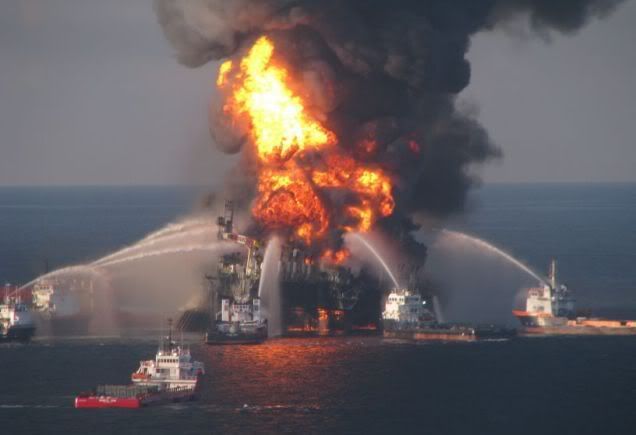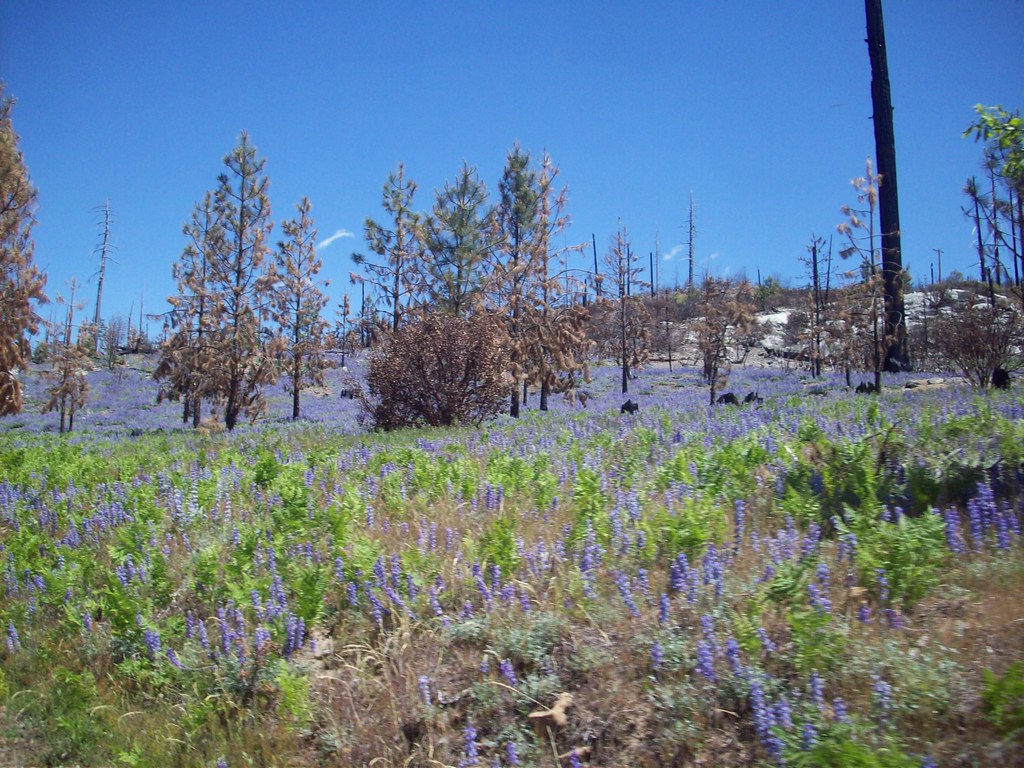by Laurence LewisLuke Cole pioneered environmental justice law. It's now such an established field that it's hard to believe it even needed pioneering. It's hard to believe that its pioneer was only 46 years old when he died last year. As I wrote then, still stunned with grief:
Luke Cole graduated with honors from Stanford, and cum laude from Harvard Law School. He could have done anything. He could have gone to work for any law firm in the country, and made a fortune.
Instead, he moved to San Francisco and co-founded a non-profit that specialized in environmental justice law. The San Francisco Chronicle explained:
"This was not a well-understood concept at the time," said Brent Newell, an attorney and legal director of Mr. Cole's nonprofit organization, the Center on Race, Poverty and the Environment in San Francisco. Mr. Cole was executive director of the center.
"He was told by poverty law firms that they don't do environmental law, and the big environmental groups said they don't do law for poor people," Newell said.
But Luke met Ralph Abascal, himself a legend of poverty law, who worked at California Rural Legal Assistance.
Abascal understood exactly what Mr. Cole wanted to do, Newell said, and "gave Luke a phone and a desk." Abascal and Mr. Cole founded the center in the fall of 1989.
And the Los Angeles Times:
Cole first demonstrated his innovative approach in 1990, when he helped the poor, Latino residents of Kettleman City in the San Joaquin Valley defeat a proposed toxic waste incinerator project by pointing out that the environmental impact report had not been translated into Spanish, the primary language of almost half of the town's residents.
In the late 1990s he applied civil rights law to a case in South Camden, N.J., where an impoverished black community opposed the construction of a cement recycling plant. The proposed plant met technical requirements, but Cole, citing Title VI of the Civil Rights Act of 1964, argued that it would worsen the quality of life in a minority community that was already suffering from high levels of exposure to dangerous pollutants.
In Kivalina, Alaska, he recently settled a case against a major zinc producer whose mining operations he said were fouling the water supply of a 4,000-year-old Inupiat Eskimo village. He was continuing to represent the Inupiat people in a new lawsuit alleging that Exxon, Chevron and other oil companies were contributing to global warming, which some experts say is causing Kivalina to erode.
Of the South Camden case, which was overturned on appeal, the New York Times wrote:
“It marked the first recognition by any court that African-Americans and Latinos were experiencing discrimination with regard to the siting of noxious, polluting facilities,” said Olga Pomar, a lawyer with South Jersey Legal Services and a co-counsel in the case. “That sparked greater awareness among environmental justice activists.”
An awareness that snowballed into a movement. More on that, but first a little about the man. Again, as I wrote last year:
Luke had bright, sparkling eyes, and one of the easiest and most heartfelt laughs I've ever heard. He met one of the warmest, most soulful women in the world, married her, and helped her raise her son. He threw himself a birthday party every year, adamantly refused all presents, and made it an occasion for root beer tastings, having speciality brands shipped in from all over the country. He also held chocolate tastings. He loved music, theater, and art, intensely supported the presidential campaign of the young Illinois Senator who had been just behind him, at law school, and went to Washington both for the inauguration and to be consulted on environmental justice issues.
He was a passionate birder, and traveled all over the world, leading eco-tourist expeditions to Madagascar. I got a postcard from him, just last week. He'd seen his first lemurs, including the rare and once endangered Perrier Sifaka, as well as plenty of new birds. He'd been bitten by leeches, and had been banged up in low-speed motorcycle crashes, on Madagascar's ragged back roads. He said my toddler son would love the place. He was headed to Uganda, to meet his wife and brother. It was in Uganda that he died, in a car crash. His wife is now twice widowed, and was herself seriously injured.
The last time I saw Luke was on the last night of my last visit to the Bay Area. Mrs. T and I had dinner with Luke and his wife. They brought a toy for our son to play with, on the drive back to Oregon.
A few days after writing that, I reflected on my grieving, here.
But as great a friend as he was, as great a person as he was, it's Luke's work that deserves to be emphasized. At a private memorial, timed to coincide with his birthday, his friend and colleague, Angela Harris, with whom he both taught and practiced law, explained part of what made Luke such an invaluable activist and attorney. She has given me permission to post her words, in their entirety. They are a lesson for us all.
Nancy asked me to say a little bit about Luke’s professional legacy. Luke and I taught the first environmental justice class at Berkeley together, which was probably one of the first such classes in the country. I was there when Luke created the Center on Race, Poverty, and the Environment in a little cubicle in the back room of California Rural Legal Assistance, and I was the founding chair of his board when CRPE officially became a separate organization. We’ve never written an article together, but I talked to him a lot about his ideas and I teach his work all the time because his writings are so funny and true and useful.
The first thing to say is that Luke pretty much started the field of environmental justice lawyering. He didn’t start the environmental justice movement, but he started the conversation about how you lawyer for the movement. For people who don’t know, the environmental justice movement is about recognizing that environmental hazards, like pollution, pesticides, toxic waste, and natural disasters, affect everyone . . . but they don’t affect everyone equally. Because of the way our society is structured, poor people and people of color suffer the most, whether it’s farmworkers in the Central Valley dealing with toxic plumes of pesticides blowing off the fields into their homes or little villages in Alaska having their hunting and fishing livelihoods destroyed by oil extraction, pollution and climate change.
It seems obvious, and yet Luke was the first person to recognize that for lawyers, an environmental justice practice meant bringing together two fields that had always been understood as totally separate and unrelated: environmental law and civil rights law. His very first article, which made him famous in the academy, was about how lawyers have to master both fields in order to understand and represent poor people and people of color who are facing environmental hazards. Indeed, even for lawyers who have a purely “environmental” practice and lawyers who have a purely “civil rights” practice, it is important to recognize that a clean and healthy environment for all requires some measure of social justice, and that the fight against discrimination includes the fight for clean water and air and the right to participate in decisions made about the environment.
But Luke’s contributions went beyond inventing a new legal practice area. He also spent a lot of time writing and lecturing and teaching young lawyers about how to be a lawyer in this new field. The first lesson that he was always trying to teach was a professional lesson about service and humility. Because we have our professional degrees and we have what he called “macho law brains,” we lawyers always think we should be up there at the front of the struggle, filing lawsuits and saving everybody. Luke really tried to give lawyers the opposite message: Lawyers should be “on tap, not on top.” It’s not our job to run everything. It’s our job to help communities help themselves. He told young lawyers not to take any action until they could convincingly answer the following questions:
Does it educate?
Does it build the movement?
Does it get to the root of the problem?
The second lesson that Luke tried to teach young lawyers was that, in the end, environmental justice isn’t about law anyway; it’s about power. People of color and poor people always get the short end of the stick, not because we need more laws, but because our capitalist system with its history of racial exploitation is structured that way. So building power is what environmental justice is all about, and that’s why CRPE has lawyers and community organizers working cooperatively to build the movement.
Sometimes realizing that it’s all about power is hard for people. Another thing Luke used to talk about was what he called the “three great myths of white Americana.” The three great myths are these:
- The government is on our side.
- The truth will set you free.
And last but not least:
- We need a lawyer.
And even though Luke was all about professional humility and a service ethic for lawyers, when it came to building power, he was also all about kicking ass. He was never afraid to afflict the comfortable as well as comforting the afflicted. If he needed to be in your face, he was in your face. And although he was good at representing his clients in meetings, he was also good at completely shutting a meeting down.
So that’s what Luke was all about as a professional person. The last thing I want to say is that I was really happy to get a chance to talk about his legacy with you all, because his words are so true and so right, and when I say them I feel as if he is still here. Most importantly, I am happy because his work continues. When I talk about Luke’s work, I get to speak in the present tense. And that is a very great gift.
Luke saw a need and filled it. He did what was right because it was right. When everyone told him he couldn't do it, he refused to listen. When there was no place for him to do what he knew needed to be done, he created a place—for himself, and for the many who have now joined the cause.
Luke and CRPE were named recipients of the 2009 American Bar Association Award for Excellence in Environmental, Energy, and Resources Stewardship. At a public memorial held last September, it was announced that a permanent chair was being established at Stanford Law School, called the Luke W. Cole Professor of Environmental Law and Director of the Stanford Environmental Law Clinic.
It's hard to believe that a year has passed since his death. It was hard to believe when it happened, and it's still hard to believe today. Luke was so much larger than life, and yet he was so beautifully human. Knowing he was there, fighting the good fight, was a source of strength and comfort. It's still hard to conceive that both we who knew and loved him, and all who didn't know him but benefitted from his efforts, will forever more be without him. He is an inspiration, now, still. To those who work in environmental justice law, he is nearly legend.
continued at Daily Kos....
 President Obama is systematically increasing the chances that mountaintop removal mining (MTR) permits may not be granted by insisting on compliance with the law. One tool that mining companies, and other corporations that harm our environment for their own profit, hate is an environmental impact statement (EIS). An EIS is generally a document based on scientific studies and data that analyze the environmental impacts of a proposed project, such as MTR. When a project might have a significant environmental impact, then an EIS may be required to answer questions, such as what are the environmental impacts, are there alternatives to the project, and can mitigation measures lessen these impacts. Corporations that want to rape our environment dislike EIS because it reduces the chances of their projects being approved as they want. Not only is the decision maker better informed of the facts, but the public is allowed to participate in the EIS process and environmental organizations have been successful in terminating projects by litigation. Bush used one tool to increase the chances of project approvals, and now Obama has nixed this tool, paving the way for more EIS required for MTR.
President Obama is systematically increasing the chances that mountaintop removal mining (MTR) permits may not be granted by insisting on compliance with the law. One tool that mining companies, and other corporations that harm our environment for their own profit, hate is an environmental impact statement (EIS). An EIS is generally a document based on scientific studies and data that analyze the environmental impacts of a proposed project, such as MTR. When a project might have a significant environmental impact, then an EIS may be required to answer questions, such as what are the environmental impacts, are there alternatives to the project, and can mitigation measures lessen these impacts. Corporations that want to rape our environment dislike EIS because it reduces the chances of their projects being approved as they want. Not only is the decision maker better informed of the facts, but the public is allowed to participate in the EIS process and environmental organizations have been successful in terminating projects by litigation. Bush used one tool to increase the chances of project approvals, and now Obama has nixed this tool, paving the way for more EIS required for MTR. Here we are:
Here we are: John Kallas, a Portland-based forager, recently published
John Kallas, a Portland-based forager, recently published 
